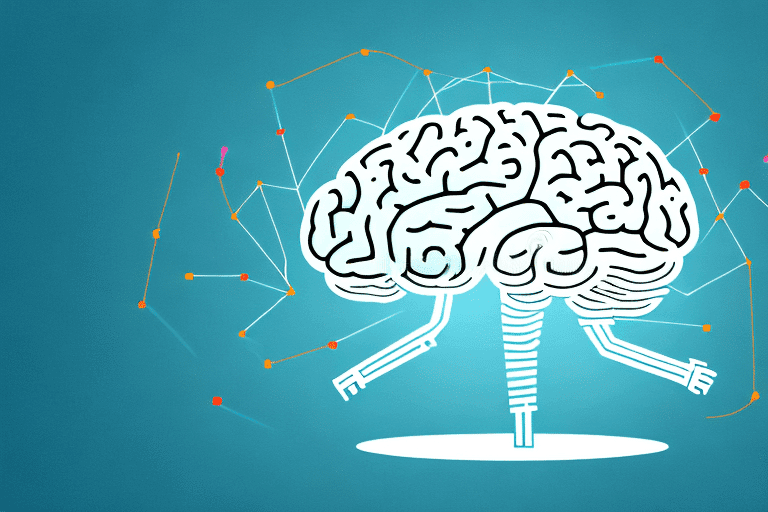UPDATED: March 17, 2024
Imagine having the ability to adapt quickly to new situations, solve problems with ease, and think on your feet. This remarkable cognitive skill is known as mental agility, and it plays a crucial role in our everyday lives. In this article, we will explore what mental agility is, its benefits, the science behind it, how to assess and improve it, and ways to maintain it over time. So, let's dive in and unlock the potential of our minds!
Understanding Mental Agility
Defining Mental Agility
Mental agility can be described as the ability to think flexibly, adapt to change, and quickly grasp new ideas. It involves being open to different perspectives, making connections between seemingly unrelated concepts, and finding innovative solutions to problems. Essentially, it's like having a mental gymnast in your brain, ready to perform intellectual acrobatics whenever necessary.
Developing mental agility requires constant practice and a willingness to step out of your comfort zone. By engaging in activities that challenge your thinking patterns, such as puzzles, brainstorming sessions, or learning a new skill, you can strengthen your cognitive flexibility and enhance your problem-solving abilities.
The Role of Mental Agility in Everyday Life
From the moment we wake up to the time we go to bed, mental agility influences almost every aspect of our lives. Whether it's making decisions at work, managing relationships, or facing unexpected challenges, our ability to think quickly and creatively can determine our success and happiness.
Think about it - in a fast-paced world where change is the only constant, those who possess mental agility are better equipped to navigate through uncertainty and seize opportunities that others might miss. They are the ones who effortlessly adapt to new technologies, embrace diverse perspectives, and consistently find innovative solutions.
Moreover, mental agility plays a crucial role in fostering resilience and emotional intelligence. When faced with setbacks or failures, individuals with high levels of mental agility are more likely to bounce back, learn from their experiences, and grow stronger. This ability to adapt and thrive in challenging situations not only enhances personal well-being but also contributes to overall success in various areas of life.
The Benefits of Mental Agility
Mental Agility and Problem-Solving
One of the most significant benefits of mental agility is its impact on problem-solving. When faced with complex challenges, individuals with enhanced mental agility can effortlessly analyze the situation from multiple angles and devise creative strategies to overcome obstacles. They have the ability to generate a wide range of options, evaluate their potential outcomes, and select the best course of action.
In fact, studies have shown that high levels of mental agility are associated with improved problem-solving abilities and greater job performance. For businesses, this means having employees who can tackle complex issues and contribute to innovative solutions.
Moreover, mental agility not only aids in problem-solving but also enhances cognitive flexibility. This ability allows individuals to adapt to new information quickly, switch between different tasks efficiently, and think creatively in various situations. By constantly challenging their minds and exploring diverse perspectives, individuals can strengthen their cognitive flexibility and approach problems with a fresh outlook.
Mental Agility and Emotional Intelligence
Mental agility also plays a fundamental role in emotional intelligence, our capacity to understand and manage emotions effectively. When our minds are agile, we are better able to regulate our emotions, empathize with others, and resolve conflicts with ease. By embracing different perspectives and thinking flexibly, we can build stronger relationships, foster collaboration, and thrive in social settings.
Furthermore, individuals with high levels of mental agility tend to exhibit greater self-awareness and emotional resilience. They can navigate challenging situations with composure, adapt to changing environments with ease, and maintain a positive outlook even in the face of adversity. This emotional resilience not only benefits their personal well-being but also enables them to inspire and support those around them, creating a positive and empowering work culture.
The Science Behind Mental Agility
The Brain and Mental Agility
Our brains are incredibly adaptive, and mental agility relies on the brain's ability to make connections between different neural pathways. When we engage in activities that challenge our thinking, such as puzzles or learning new skills, our brain forms new connections and strengthens existing ones. This process, known as neuroplasticity, is the foundation of mental agility.
Neuroplasticity is a fascinating concept that highlights the brain's remarkable ability to reorganize itself by forming new neural connections throughout life. This phenomenon allows us to adapt to new experiences, learn new information, and develop skills, ultimately shaping our cognitive abilities and mental agility in the process.
Neuroplasticity and Mental Agility
Research has shown that by consistently challenging our minds, we can enhance our mental agility and improve cognitive function. Activities like learning a musical instrument, solving complex puzzles, or engaging in strategic games stimulate neuroplasticity and promote the growth of new neural connections.
Moreover, the concept of neuroplasticity underscores the importance of continuous learning and intellectual stimulation in maintaining cognitive health. By actively seeking out new challenges and experiences, we not only enhance our mental agility but also support overall brain health and function.
Furthermore, adopting a growth mindset can also contribute to mental agility. By believing that our abilities are not fixed but can be developed over time, we become more open to learning, embracing challenges, and ultimately, enhancing our mental agility.
Cultivating a growth mindset involves viewing setbacks as opportunities for growth, seeking feedback to improve, and persisting in the face of obstacles. This mindset shift can have profound effects on our mental agility, as it encourages us to approach tasks with a sense of curiosity, resilience, and a willingness to learn from both successes and failures.
Assessing Your Mental Agility
Recognizing Strengths and Weaknesses
Before embarking on a journey to enhance your mental agility, it's essential to take stock of your current strengths and weaknesses. Reflect on situations where you have demonstrated mental agility and identify areas where you can improve. By being aware of your unique cognitive landscape, you can tailor your efforts towards areas that need the most attention.
One way to recognize your strengths is to think about instances where you successfully navigated challenging situations by thinking quickly and adapting to new information. These moments can provide valuable insights into your natural inclinations and abilities when it comes to mental agility. On the other hand, considering times when you struggled to think on your feet or found it challenging to switch strategies can highlight areas that may require more focus and development.
Tools for Measuring Mental Agility
Fortunately, there are various tools available to measure and assess your mental agility. These tools often include tests and assessments that evaluate your cognitive flexibility, creativity, problem-solving skills, and adaptability. By utilizing these tools, you can gain insights into your cognitive strengths and areas for improvement, providing a roadmap for your mental agility journey.
One popular tool for measuring mental agility is the Stroop Test, which assesses your ability to quickly switch between different cognitive tasks. Another commonly used assessment is the Remote Associates Test (RAT), which challenges your creativity and problem-solving skills by asking you to find connections between seemingly unrelated words. These tools not only provide a quantitative measure of your mental agility but also offer valuable feedback on specific areas that you can work on to enhance your cognitive abilities.
Strategies to Improve Mental Agility
Mindfulness and Mental Agility
Mindfulness practices, such as meditation and deep breathing exercises, have been shown to enhance mental agility. By cultivating present-moment awareness and non-judgmental acceptance, we train our minds to focus, think more clearly, and react effectively to ever-changing situations. Engaging in regular mindfulness practices can help us become more attuned to our thoughts and emotions, empowering us to make conscious choices.
Furthermore, mindfulness techniques have been linked to reduced stress levels and improved overall well-being. When we practice mindfulness, we learn to observe our thoughts without getting caught up in them, leading to a greater sense of mental clarity and emotional stability. This heightened awareness can translate into better decision-making skills and increased resilience in the face of challenges.
Physical Exercise and Mental Agility
Did you know that physical exercise can also benefit your mental agility? Engaging in regular physical activity, such as aerobic exercises or yoga, not only boosts your physical health but also enhances cognitive function. Studies have demonstrated that exercise increases blood flow to the brain, promotes the growth of new neurons, and improves memory, attention, and decision-making abilities.
In addition to these cognitive benefits, physical exercise has been shown to release endorphins, also known as "feel-good" hormones, which can elevate mood and reduce symptoms of anxiety and depression. The combination of improved mental acuity and emotional well-being makes exercise a powerful tool in maintaining overall brain health and agility.
Nutrition and Mental Agility
What we eat can profoundly impact our mental agility. Consuming a balanced diet rich in nutrients, such as omega-3 fatty acids, antioxidants, and vitamins, can support brain health and enhance cognitive function. Foods like fatty fish, blueberries, dark chocolate, and leafy greens have been found to promote mental clarity, improve memory, and protect against cognitive decline.
Furthermore, maintaining a healthy diet not only benefits our brain function but also plays a crucial role in supporting our overall physical health. Nutrient-dense foods provide the necessary fuel for our bodies and minds to function optimally, ensuring that we can perform at our best in all aspects of our lives. By prioritizing nutrition as a key component of mental agility, we can unlock our full cognitive potential and lead a more vibrant and fulfilling life.
Maintaining Mental Agility Over Time
Lifelong Learning and Mental Agility
Mental agility is not a one-time achievement but rather a lifelong skill that can be continually developed. Embracing a mindset of lifelong learning, where we actively seek out new knowledge and experiences, is key to maintaining and enhancing our mental agility. Whether it's enrolling in courses, reading books, or engaging in stimulating conversations, every opportunity to learn expands our cognitive horizons.
Furthermore, lifelong learning not only benefits our mental agility but also contributes to overall well-being. Studies have shown that individuals who engage in continuous learning are more likely to experience increased levels of satisfaction and fulfillment in their lives. This is because learning new things stimulates the brain's reward center, releasing feel-good hormones that boost mood and motivation.
The Role of Rest and Relaxation in Mental Agility
Lastly, it's crucial to acknowledge the role of rest and relaxation in maintaining mental agility. Our brains need downtime to recharge and process information. By engaging in activities that promote relaxation, such as getting enough sleep, practicing self-care, and taking regular breaks, we give our minds the opportunity to replenish and rejuvenate.
In addition to promoting mental agility, adequate rest and relaxation have been linked to improved memory retention and problem-solving abilities. When we allow our brains time to rest, we create space for neural connections to strengthen, leading to better cognitive performance. Therefore, incorporating restful practices into our daily routines is essential for long-term mental acuity and sharpness.
In Conclusion
In a rapidly changing world, mental agility is becoming increasingly crucial. By understanding what mental agility is and how to enhance it, we can unlock new levels of creativity, problem-solving, and adaptability. So, let's nurture our minds, embrace diverse perspectives, challenge ourselves, and cultivate a lifelong love affair with learning. With mental agility as our ally, we can navigate the unpredictable seas of life with confidence and curiosity.





